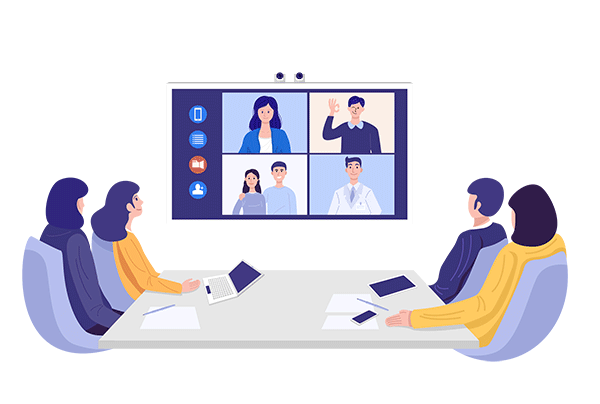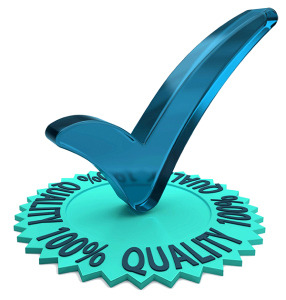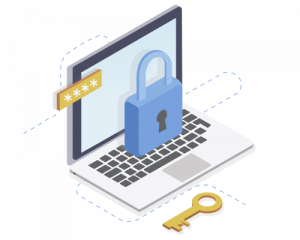What are Good Documentation Practices Translations?
Good documentation practices translations are essential in many sectors of the life sciences to ensure that documents produced during medical product development and manufacturing processes meet international guidelines across languages. Good documentation practices (abbreviated as either GDP or GDocP) are a set of standards for highly regulated industries like the pharmaceutical or medical devices industries that outline how documents relating to the production and supply chain are created, maintained, and controlled.
Globally, both the FDA and EMA require companies to comply with GDocP standards when bringing new medications or medical devices to market. For both the US and EU markets, the FDA and EMA’s GDocP standards follow ALCOA principles for upholding data integrity, which requires documents to be attributable, legible, contemporaneous, original, and accurate (ALCOA).
When bringing a new medication or medical device to market, international regulatory agencies worldwide will typically inspect these documents – a process made much quicker and more efficient when the documents are available in the official language, or languages, of the desired market. Similarly, companies outside of the US will need to submit English-translated documents to the US FDA to comply with GDocP standards.
As the global demand for new medication and medical technologies drives companies to do business across borders, accurate and cost-effective translations of GDocP documents are essential for regulatory compliance and upholding data integrity.
With a global network of over 10,000 in-country linguists and subject matter experts with proven experience localizing documents for the medical devices and pharmaceuticals industries, CSOFT Health Sciences provides end-to-end medical translations for a wide range of GDocP documents, including
- Batch Manufacturing Record Translations
- Lab Testing and Calibration Record Translations
- Forms/Log Sheets Translations
- SOP Translations
- Training Manual Translations
- Package Label and Insert Translations
- Procedural Checklist Translations
- Quality Management Record Translations
CSOFT Health Sciences is committed to excellence throughout medical translation. Typically, the process for following and maintaining GDocP looks like this:
Creation
For life science companies creating a new product, whether it’s a medical device or drug therapy, proper documentation describing the product must be created during the R&D process to ensure real-time accountability. To ensure accuracy, all source documentation must be error-free before the medical translation process. For high-quality translation, the medical documents must be created in a timely fashion, with linguistic review and approval for technical accuracy.
Approval
For the medical documentation to have proper verification of accuracy, it must be approved, signed off, and dated in each target language by authorized individuals.
Maintenance
To ensure all documentation is up to date with regulatory and safety standards, it must be regularly reviewed. Protecting data privacy is key throughout the medical translation process, but particularly during regular maintenance of the documents. Ensuring all GDocP are version controlled, securely backed up, and password protected are all crucial components for protecting security.
Management
Anytime a document is altered, a revision history must be maintained, and the reason for the modification must be recorded. A clear process must be established to ensure that previous versions of the documents are not unintentionally used and the updated version is available for future review.

Regulatory Meeting Interpretation
Life sciences regulatory meetings are increasingly an essential step for gaining approval for new therapies, devices, or products in international markets, and regulatory meeting interpretation can make these meetings accessible for attendees around the world. Providing accurate GDocP translations during regulatory meetings not only ensures that safety and industry standards are being met but that the products can be traced and monitored with proper accountability. Regulatory bodies like the WHO, FDA, TGA, EMA, and Health Canada all require and enforce compliance. The FDA specifically requires GDocP for Good Manufacturing Practices (GMP) that oversees the Good Laboratory Practices (GLP), such as regulations like 21 CF Part 58 and medical device directives like 21 CFR Parts 211 and 820.
Proper adherence to GDocP guidelines ensures consistency and success with regulatory body compliance. In fact, the FDA has cited that, when conducting regulatory audits, inadequate compliance with GDocP standards remains one of the biggest reasons life science companies fail inspections. In addition, by maintaining clear documentation throughout the product’s lifecycle, GDocP allows for better analysis for improvements in product quality and cost savings for businesses. Furthermore, establishing GDocP is essential for life science businesses looking to obtain the necessary ISO certifications to manufacture and produce their products, making the implementation and compliance of GDocP document translations critical for success. CSOFT Health Sciences’ expertise in interpreting and medical translation can ensure accurate and timely multilingual communication for every regulatory meeting, no matter what language your company speaks.
Learn more about our regulatory meeting interpretation solutions.
Advanced Solutions for Certified GDP/GDocP Translations
Part of the importance of choosing a language service provider (LSP) is ensuring that they adhere to and follow GDocP. For all parties involved in the production and supply chain for the product, including vendors and contractors, following GDocP is mandated by regulatory bodies to ensure safety and compliance. To make matters more complex, while many of the documents involved in the production and supply chain for life science companies are electronic, sometimes there are handwritten entries or video and audio recordings that require high-quality and technically accurate translation. To avoid audit failures, finding a partner who has experience and understands GDocP for all document and content types is crucial in ensuring the success of the product when entering the local market. CSOFT Health Sciences has over 20 years of industry experience providing a full range of localization solutions for certified medical translations in the life sciences and healthcare.
Learn more about our certified translations.


Life Science Regulatory Translations
Currently, several regulatory agencies enforce Good Documentation Practices (GDocP) for life science companies, including the US FDA, the EU’s EMA, Australia’s TGA, Health Canada, and the WHO. With multiple markets and agencies at play, different requirements for language and translations exist, depending on which jurisdictions you may find yourself under. It is, therefore, essential that companies working in this space use a qualified language service provider (LSP) who is knowledgeable of global regulations for medications and medical devices and has proven experience working in competitive international life science markets.
In addition to helping companies comply with GDocP standards and localize essential documents, CSOFT Health Sciences offers a full range of translations for life science regulatory documents, including licensing agreement translations, patent application translations, investigator’s brochure (IB) translations, IRB correspondence translations, and clinical trial protocol translations.
Learn more about our life sciences regulatory document translations.
Quality Assurance
CSOFT Health Sciences has developed a process for quality assurance to ensure that every medical translation project meets quality standards in a cost-effective and timely manner. We are certified in ISO 17100:2015, ISO 9001:2015, and ISO 13485:2016 to ensure our customized solutions meet global regulatory requirements. Our subject matter expert linguists have at least seven years of experience and work with in-country reviewers and project style guides to meet industry standards. CSOFT offers an online translation management ecosystem for one central location to leverage real-time translation memory and terminology management through our innovative cloud-based technology. Every step of the way, CSOFT has you covered.
Learn more about our quality assurance process.
Data Security
With over 20 years of experience in medical translation, CSOFT Health Sciences understands the importance of data security to our clients, and we take nothing for granted when confidentiality is a concern. Our well-documented and fully traceable information data security policies, checklists, and quality records leverage the best practices of ISO 27001. They are designed to protect everything from source data to translations. From our 24/7/365 data monitoring and advanced encryption to our access control measures, you can be sure that your project data is safe from start to finish.
Learn more about how CSOFT prioritizes data security.

